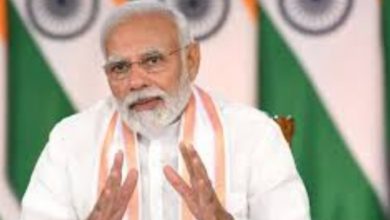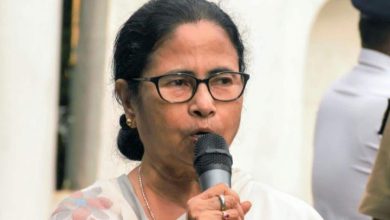Could North Korea become a breeding ground for new Covid mutations?

International health organizations are concerned that despite North Korea’s insence that it has the coronavirus outbreak under control, limited vaccines, rudimentary medical facilities and the poor health of the general population make the isolated state the ideal environment for new variants of the virus to emerge.
Virologs point out that South Africa, which has an alarmingly high HIV infection rate, has had problems halting the spread of the disease and has been the source of at least one new mutation that has since spread around the world. And while South Africa has accepted outside assance and aggressively fought the virus, North Korea has opted for isolation and, in the early phases of the pandemic, rebuffed offers of vaccines and other medical equipment.
In mid-May, the government finally admitted what virologs had always assumed: that Covid-19 was spreading rapidly among the local population and earlier reports of unspecified “fevers” across the country were cases of the virus.Best of Express PremiumPremiumPremiumPremiumPremium
Despite those offers of assance from foreign governments and health agencies, Pyongyang claims that its coronavirus infection rate is in steady decline. On Tuesday, state media reported 61,730 new cases of “fever,” bringing the total number of cases since late April to 4.19 million, approximately one in six of the 25.78 million population.
Little faith in official figures
With outside aid organizations not permitted to enter the secretive state to gauge the true scale of the problem and little faith in official figures, however, there is growing concern that the virus may be evolving.
“I believe the situation we have seen in South Africa with coronavirus in a population that had a high HIV infection rate has parallels with what is happening in North Korea,” said Kazuhiro Tateda, president of the Japan Association of Infectious Diseases and a member of the advisory panel set up to advise the Japanese government at the outset of the health crisis in early 2020.
“Health authorities there have had problems eradicating the virus and, in places, it has mutated into new strains,” he told DW.
Tateda also points out that North Korea has a serious problem with tuberculosis, which is also transmitted between people through the air.
“For many years, it has proved difficult to stop the spread of TB, and I can see the same thing happening with Covid. This is, of course, made worse a healthcare system that is not very advanced, food shortages, and the fact that we believe very few people have been vaccinated,” Tateda added.
In a recent seminar in Seoul examining the situation in North Korea, Kim Sin-gon, a professor at Korea University’s college of medicine, pointed out that the delta and omicron variants of the virus emerged in areas of India and South Africa with relatively low levels of vaccination.
“This is why South Korea and the world should pay more attention to North Korea’s struggle with Covid-19,” The Korea Times quoted him as saying. “Its zero vaccine rate is deeply concerning.”
Fears for 40 per cent of population
Kim says he has little trust in the official figures on infections and that he estimates the virus may have already infected fully 40% of the North Korean population.
That concern has been echoed the World Health Organization, which cautioned in May that “unchecked transmission” in North Korea could lead to the emergence of new variants of the virus.
“WHO has always said that where you have unchecked transmission, there is always a higher risk of new variants emerging,” said Mike Ryan, director of emergencies for the organization, at a press briefing.
Quizzed about how the WHO intends to intervene in the North, Ryan said the organization was ready to provide assance but could only wait to be invited in the government in Pyongyang as it has no power to step in unilaterally, even when lives are at stake.
For Dr Edwin Salvador, the WHO representative to North Korea, that is the biggest frustration in his efforts to provide help.
Shortage of information
“Through our country office, the WHO has shared with the national authorities the recommended priority actions for Covid response, along with links to various WHO guidelines,” he told DW.
“The WHO has also shared a l of deployable supplies such as masks, gloves, personal protective equipment, and so on.”
It is still awaiting a response from Pyongyang, he said.
The WHO has provided North Korea with information on variants of concern and their characterics, Salvador added, and shared laboratory guidance on Covid-19 testing and sequencing, as well as online training resources. But there is still a shortage of the information that would enable the organization to provide more targeted solutions, he said.
“State media continues to be the only source of information on the number of people with ‘fever’ in North Korea,” he said. “And in view of the numbers being reported, testing capacities and hospitals are likely to be overwhelmed, as was the case in countries with similar numbers of cases.”





